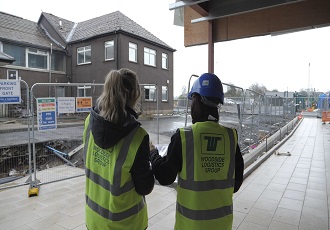By Aisléan Nicholson, Partner at Deloitte in Belfast
Once again, many of the Chancellor’s tax measures in this Budget have been heavily trailed in the days leading up to today’s announcements. In all, there were few significant tax measures, but those that are new should be broadly positive for business.
As anticipated, there are no changes to the corporation tax rate already announced, which for larger companies means a move to 25% corporation tax rate from the end of this month as reconfirmed in the autumn statements, and the super-deduction (which was designed to ensure businesses didn’t defer capital expenditure until the higher tax rate applies) also expires as previously announced.
However, for Northern Ireland businesses, the loss of the super-deduction will be offset by the move to a 100% first year allowance for the next three years, with a view to this being made permanent. In effect, this means full expensing of capital expenditure on qualifying assets (including IT equipment, plant and machinery) in the year of expenditure. For companies investing in special rate and long-life assets, they will benefit from a 50% First Year Allowance during this period and when taken in combination with the permanent setting of the Annual Investment Allowance at £1million from the autumn, this should continue to encourage capital investment. This will be important for maintaining investment by and subsequently the productivity of many local businesses.
Another potential positive for some innovative small and medium-sized local businesses is the enhanced Research and Development (“R&D”) rate, relevant for those loss-making companies with intensive R&D expenditure (broadly those where qualifying expenditure is more than 40% of their total expenditure). This could provide a potential benefit of up to £27 for every £100 spent on R&D activity. In addition, the delay to the restriction on the use of overseas expenditure for a further year, while the wider consultation on the UK’s R&D regime is ongoing, could be favourable for local businesses undertaking R&D overseas as well as in the UK. The Creative Industries Tax Credits, which have contributed to the creation of a flourishing film and television production industry in NI will be reformed but will continue to receive equivalent support – again, important for the local economy.
Northern Ireland’s thriving start-up scene may be further encouraged by the announcements focused on high-growth sectors, which suggest exploration of ways to encourage UK investors and pension funds to commit funding to early-stage companies, though we’ll need to wait for the detail to emerge from further consultation to see how this may work in practice. Northern Ireland will also have an Investment Zone with a variety of reliefs, which could be of interest to local businesses and overseas companies investing in Northern Ireland, though further development of this rests on the return of the NI Executive to Stormont, because responsibility to establish Investment Zones is shared with devolved governments.
There were limited tax announcements of interest for individuals. The freezing of personal allowances introduced in the autumn statement remains in place, pulling more individuals into tax and at higher rates. The removal and subsequent abolition of the Lifetime Allowance charge for pensions, along with the increase in the Annual Allowance will be of benefit to some on higher incomes but will likely have limited impact overall. The continued freeze on fuel duty and the further extension for 12 months of the temporary 5p fuel duty cut will provide some relief while the cost of fuel remains relatively high.
Some of the wider cost of living measures and announcements targeted at the labour market, including further funding for childcare, are areas that will need to be designed and/or implemented by local government here in Northern Ireland, so it may take some time for the full effects to be felt.
Overall, the Budget effectively maintains some existing benefits for businesses that are seeking to invest, with limited measures for individuals on the tax side. We hope a resumption of devolved government will unlock some further benefits for all in due course.”


